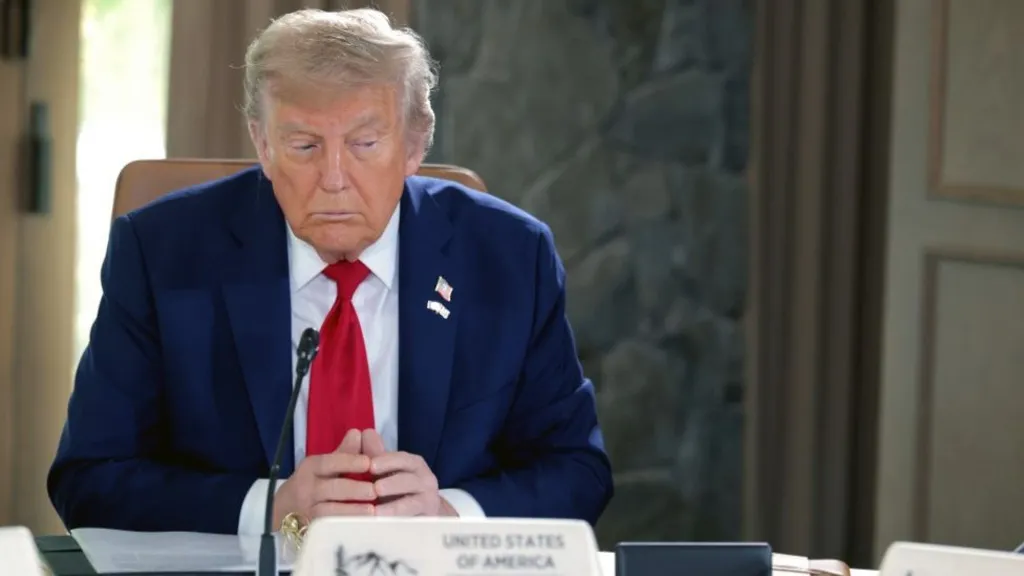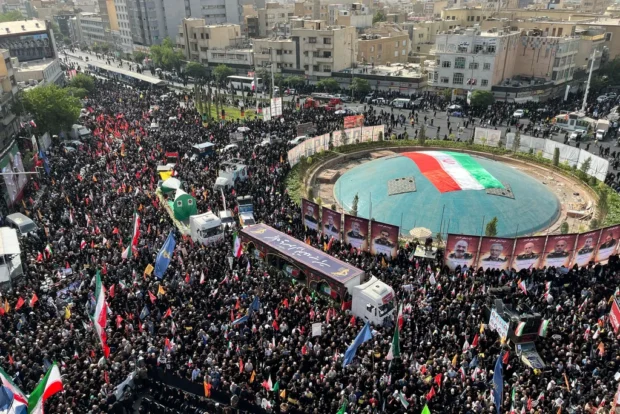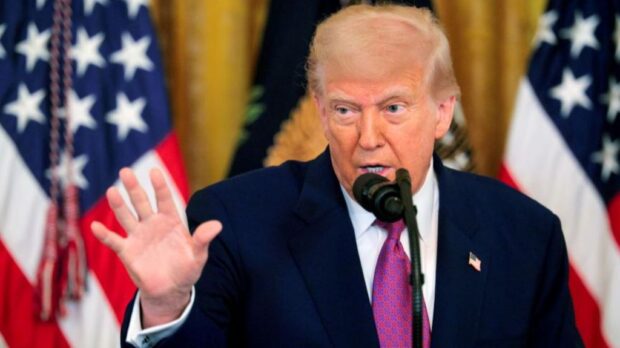
President Trump’s statements on the Israel-Iran conflict have shifted between strong support for Israeli strikes and distancing himself from them. His changing positions have intensified uncertainty as fighting escalates, particularly after his early departure from the G7 in Canada, citing “big stuff” requiring his return to Washington.
The White House attributed his departure to Middle East developments, though Trump later posted on Truth Social that it had “nothing to do with a Cease Fire.” Israeli Prime Minister Benjamin Netanyahu claimed the attacks were “fully coordinated” with the US, adding complexity to Trump’s positioning.
Option 1: Escalation Under Netanyahu Pressure
As Israeli missiles struck Tehran, Trump threatened Iran’s leaders with “even more brutal” attacks from his Israeli ally using American weapons. Trump shares Netanyahu’s goal of preventing Iran from acquiring nuclear weapons but prefers diplomatic solutions, reflecting his self-image as a dealmaker.
His approach has varied between threatening force and pursuing diplomacy. He previously stated that Israeli attacks on Iran could either help or “blow” potential negotiations. This unpredictability is sometimes characterized as strategic—the “madman theory” of foreign relations, previously associated with President Nixon’s Cold War tactics.
Some Trump advisers support “maximum pressure” approaches, believing threats will ultimately succeed because Iran isn’t serious about negotiating. However, Iran did sign the 2015 Obama-led nuclear deal that Trump later abandoned.
Netanyahu continuously pressures Trump toward military rather than diplomatic solutions. Despite Trump’s stated desire for a Nobel Peace Prize, he may feel compelled to fulfill his threats against Tehran. Israel may also seek American involvement, particularly access to US bunker buster bombs capable of destroying Iran’s underground uranium enrichment facility at Fordow.
Escalating conflict increases pressure from hawkish Republicans in Congress who have long advocated regime change in Iran. Trump might calculate that escalation would force Iran to negotiate from a weakened position, though Iran was already engaged in talks through Trump’s envoy Steve Witkoff, with a sixth round planned in Oman. These talks are now abandoned.
Option 2: Maintaining Current Course
Trump has repeatedly stated that the US is not involved in Israel’s attacks. However, escalation carries significant risks for his presidency. American naval destroyers and ground-based missile batteries are already assisting Israel’s defense against Iranian retaliation.
National Security Council advisers likely caution against actions that could intensify Israel’s attacks, especially as some Iranian missiles have breached Israeli-US defenses with deadly consequences. While Netanyahu argues that targeting Iran’s Supreme Leader Ali Khamenei would end rather than escalate the conflict, anonymous US officials report that Trump opposes such moves.
Option 3: MAGA Pressure for Withdrawal
Domestic political considerations weigh heavily on Trump’s decisions. While most Congressional Republicans maintain strong support for Israel, including continued arms supplies, key voices within Trump’s Make America Great Again movement now reject traditional support for Israel.
MAGA supporters question why the US risks Middle East involvement given Trump’s “America First” promises. Pro-Trump journalist Tucker Carlson criticized the administration Friday, arguing US claims of non-involvement are false and suggesting America should “drop Israel.” He accused Netanyahu and his “war-hungry government” of acting to drag US troops into fighting.
Carlson wrote that engaging would be “a middle finger in the faces of the millions of voters who cast their ballots in hopes of creating a government that would finally put the United States first.” Similarly, Trump loyalist Representative Marjorie Taylor Greene posted that anyone wanting full US involvement in the Israel-Iran war is “not America First/MAGA.”
This represents considerable vulnerability for Trump, pressuring him to distance the US from Israel’s offensive. He has responded by posting that he joined Russia’s President Putin in calling for the end, later stating Iran and Israel should make a deal while emphasizing “The US had nothing to do with the attack on Iran.”
Iran has threatened to attack US regional bases if Washington assists Israel’s defense, as is currently happening. Any American casualties would likely strengthen MAGA isolationist arguments, potentially pressuring Trump to urge Netanyahu toward swifter conflict resolution.














Be the first to leave a comment